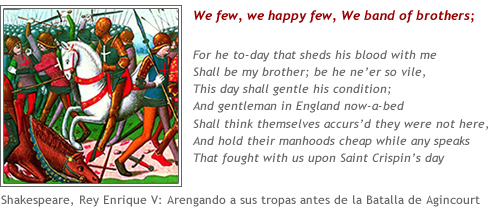| The Center for Scientific Studies expresses its condolences on the death of Robert "Bob" Thomas |
 |
 |
 |
|
Robert Thomas was born on June 1st, 1937, in Hoylake, United Kingdom. He died on February 2nd, 2015, in Gorzow, Poland, as a consequence of a stroke that he suffered in early January.
The Center for Scientific Studies expresses to his family its condolences on the death of Robert Thomas, a prominent scientist and visiting professor at CECs since 2003.
Bob earned his Physics degree at the University of Liverpool in 1959, and his PhD at the University of Cambridge in 1973. He worked as a glaciologist and meteorologist at the British Antarctic Survey in the periods of 1959 to 1963 and 1965 to 1973. In the Seventies he was Associated Researcher at the University of Nebraska and Associated Visiting Professor at the University of Maine in Orono.
Bob was always interested in Scientific Research in Antarctica and Greenland. His Antarctic work focused on the floating ice shelves, developing models on the interaction between platforms and glaciers flowing into them.
After many years of fieldwork in polar zones, he accepted an offer from Jay Zwally to work with NASA on remote sensing of polar regions, particularly in radar and laser altimetry platforms. He led the Polar Research Program of NASA for many years, one of his top priorities being to highlight the role of sea ice in the climate system and the mass balance of the ice sheets under a changing climate.
He was a member of the scientific group responsible for the laser altimetry project ICESat, as well as the Program for Arctic Regional Climate Assessment (PARCA), whose goal is to understand the mass balance of Greenland. Bob was also a researcher and member of the science team for NASA’s Geoscience Laser Altimeter System (GLAS) on the NASA Wallops Flight Facility.
Alongside the Director of the Program of Cryospheric Sciences of NASA, he established in autumn of 2002 a cooperation project with CECs and the Chilean navy in which Bob acted as a Scientific Advisor. This project included the use of a Chilean navy Orion P3 airplane and NASA and CECs sensors to survey the Patagonia Icefields and the Antarctic Ice Sheet. Fruit of that labor was reflected in 2004 in an article published in Science. This work, which was followed by another campaign in 2008, was the direct predecessor of the ongoing Ice Bridge Operation, led by NASA, which annually surveys Antarctica and Greenland.
Since 2003, Bob was a Visiting Professor at CECs, where he investigated glacier changes taking place in the Amundsen sea region, as well as in several glaciers and their floating ice shelves in the Antarctic Peninsula.
We remember and pay tribute to his tireless investigative labor, generously making available all his knowledge as physicist, glaciologist and meteorologist to the community.
We are thankful especially for his enthusiasm, support and collaboration with our institute.
|
| El Centro de Estudios Científicos (CECs) es una corporación de derecho privado, sin fines de lucro, dedicada al desarrollo, fomento y difusión de la investigación científica. El CECs fue fundado en 1984 como el Centro de Estudios Científicos de Santiago donde funcionó en una casa arrendada hasta el año 2000, momento en el que se mudó a Valdivia donde evolucionó para llegar a ser lo que es hoy. Desde su fundación el CECs ha sido dirigido por el físico Claudio Bunster. Luego de treinta y seis años de existencia, el CECs ha decidido renovar su sitio web, el cual se encuentra actualmente en construcción. En el intertanto las consultas pueden ser dirigidas a info@cecs.cl. Lo que sigue es un extracto de un folleto que fue producido justo después de que el centro se trasladara a Valdivia. Sentimos que estas palabras aún reflejan su espíritu: |
||||||
|
“

Una pequeña banda de investigadores del Centro de Estudios Científicos (CECs) en Valdivia, Chile, comparte un sueño audaz, anticuado en esta era de la Gran Ciencia – la búsqueda irrestricta del conocimiento, en un pequeño instituto independiente de investigación de primera calidad. Sus miembros se han reunido durante un lapso de tiempo que abarca ya, más de un cuarto de siglo, para emprender una aventura intelectual que es riesgosa, estimulante y tremendamente productiva.
Ubicado entre los Andes y el Pacífico, en esta pequeña ciudad del sur, el CECs es uno de los pocos institutos en el mundo que trabajan en investigación de vanguardia en múltiples disciplinas, sin recibir recursos o estar afiliada a ninguna institución anfitriona. Sus investigadores son libres para desarrollar su mejor ciencia con independencia de las modas y sin restricciones burocráticas, en una atmósfera de colaboración y apoyo mutuo. El fruto de este esfuerzo se traduce en un flujo permanente de ideas innovadoras, con estudiantes altamente capacitados y resultados que son publicados en revistas especializadas. El Centro ha demostrado lo errado de los prejuicios y escepticismo relacionados con su pequeño tamaño, al ubicar a Chile, con la capacidad de sus integrantes y audaz estrategia, en el mapa mundial de la ciencia, revolucionando de paso el modelo tradicional de estructurar la ciencia en Chile y mostrando – con su ejemplo – cómo “lograr más con menos”. Sus investigadores hablan en tono de curiosidad, maravilla y ocasionalmente orgullo al describir su emocionante viaje por aguas inexploradas. La estrategia del CECs es sustentar un entorno científicamente rico donde la ciencia y los científicos son lo primordial – atrayendo a las mejores personas, apoyándolos adecuadamente y ofreciéndoles libertad para perseguir sus sueños. ” |
| La actual tripulación del centro es la siguiente: |